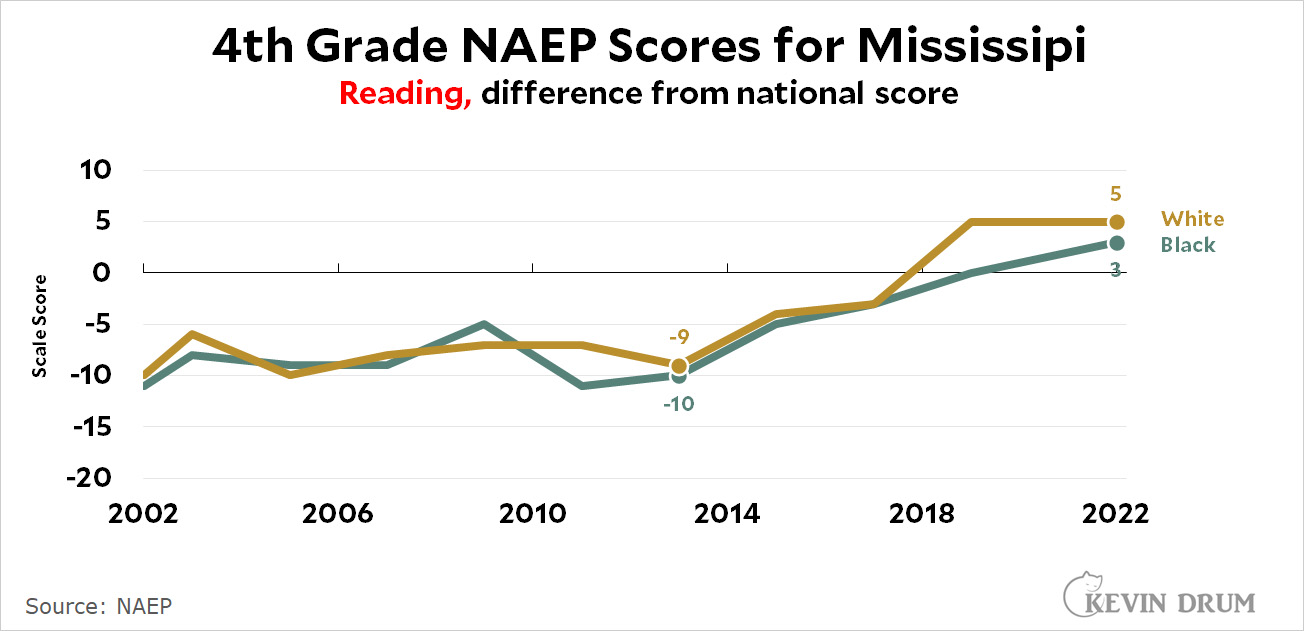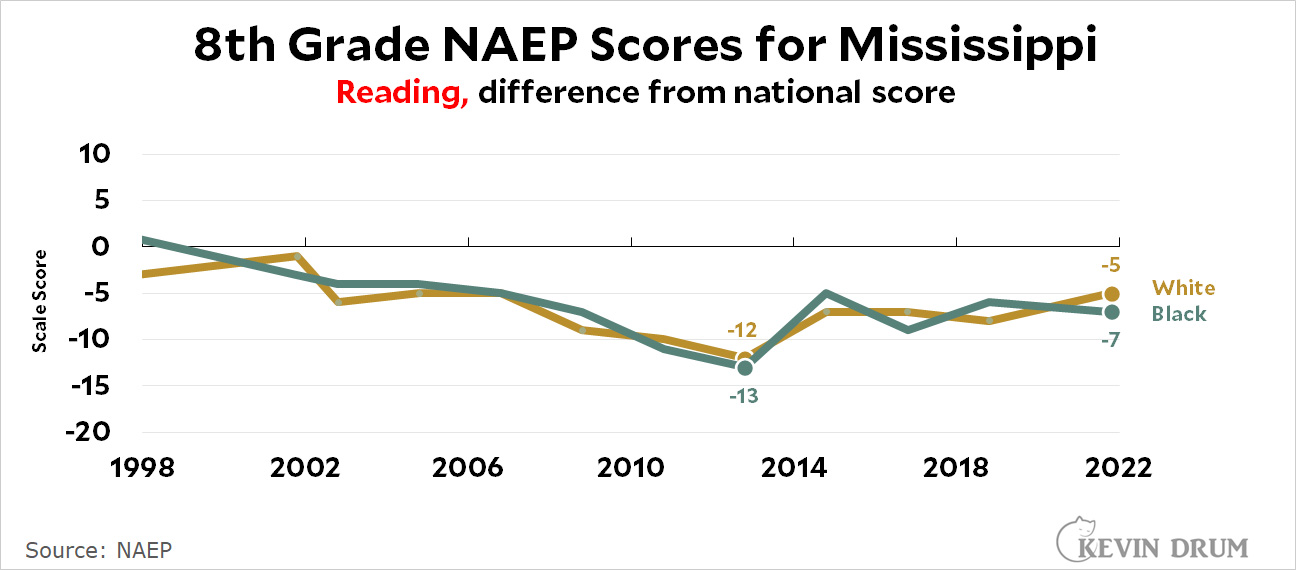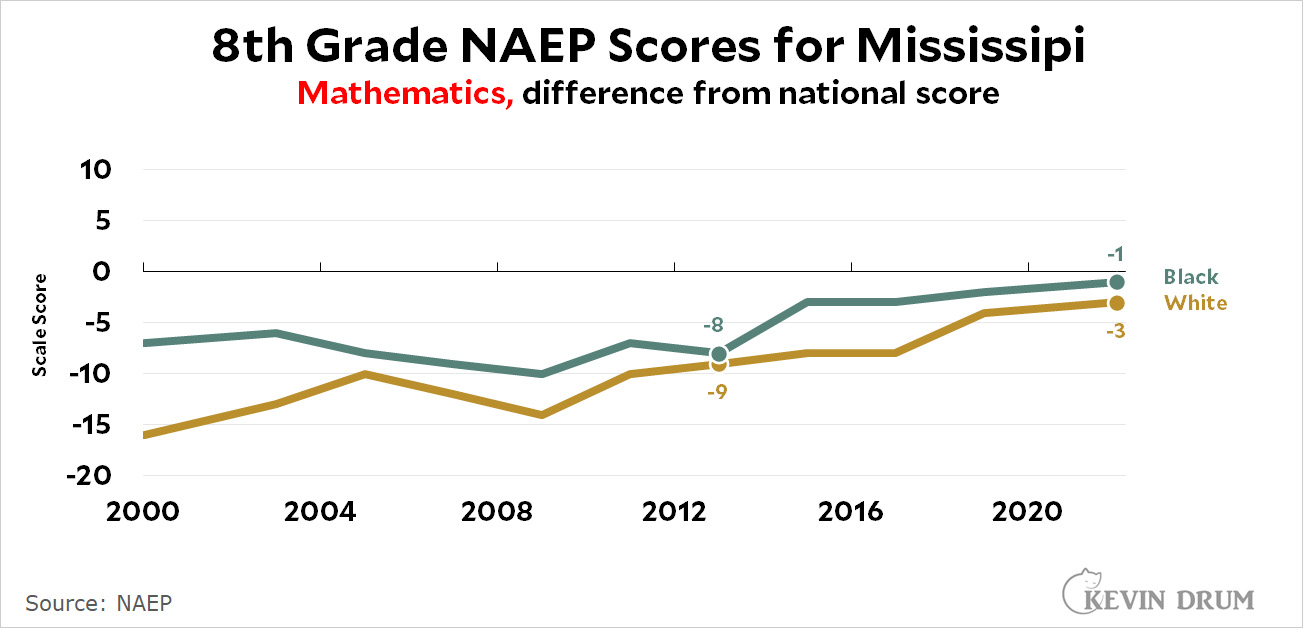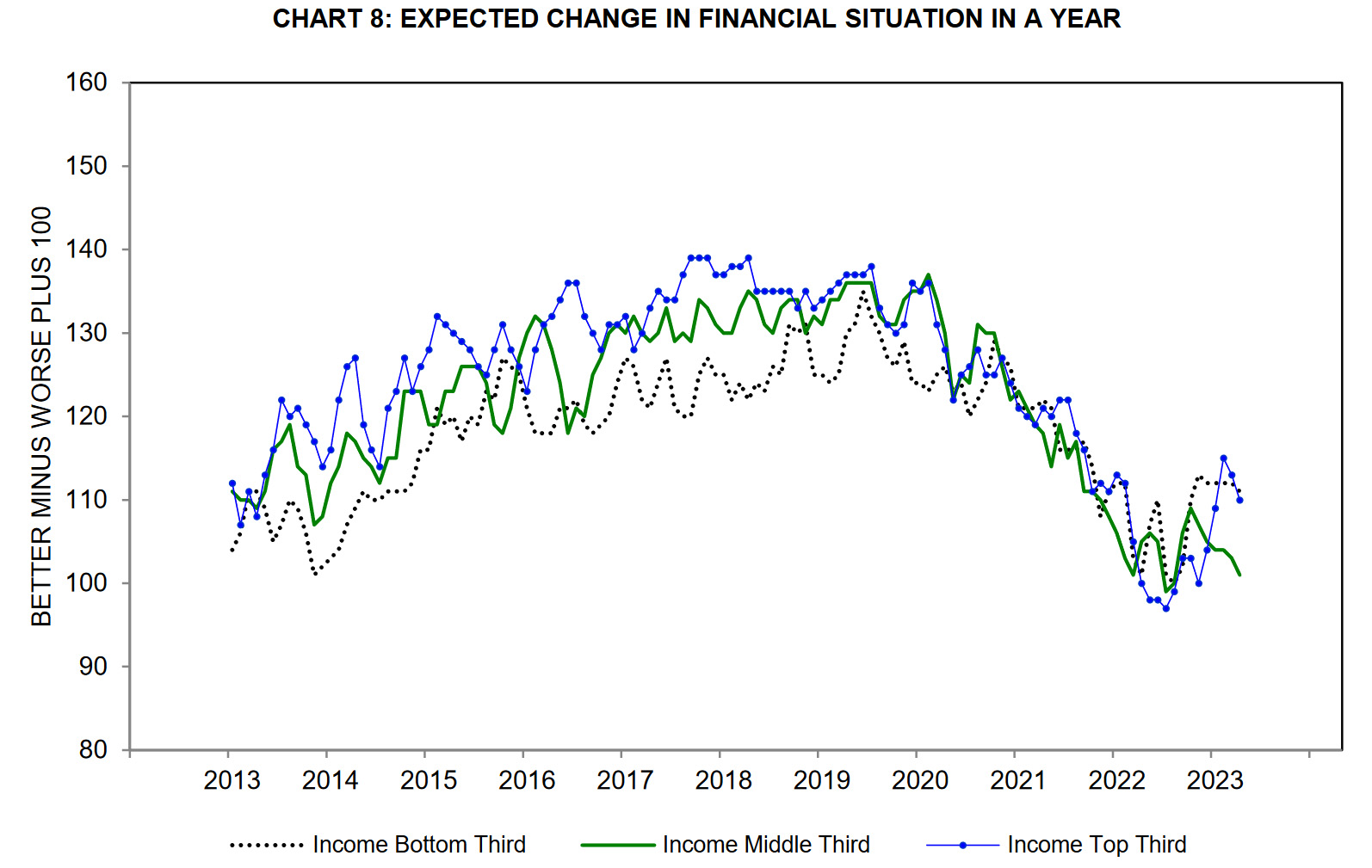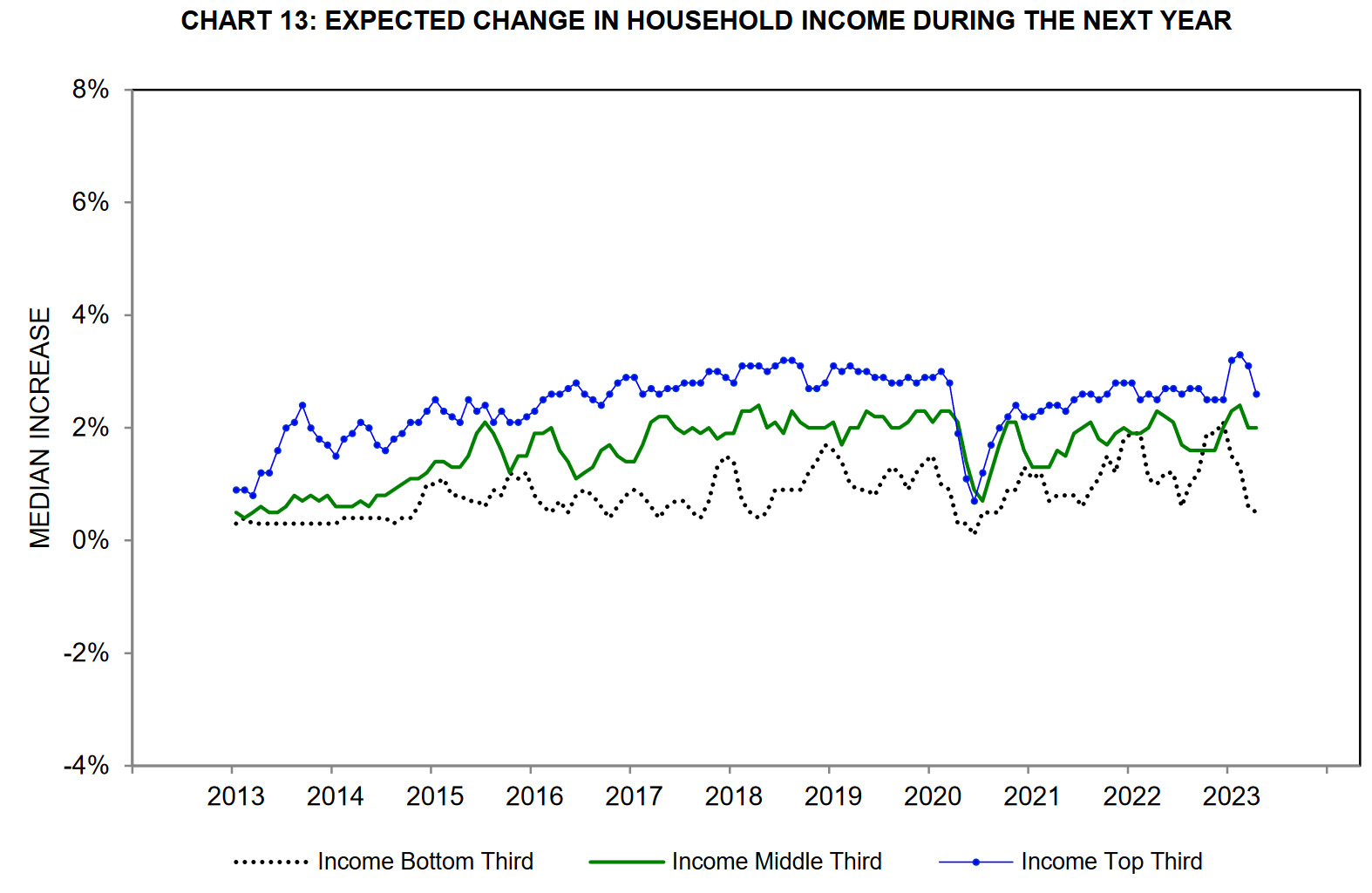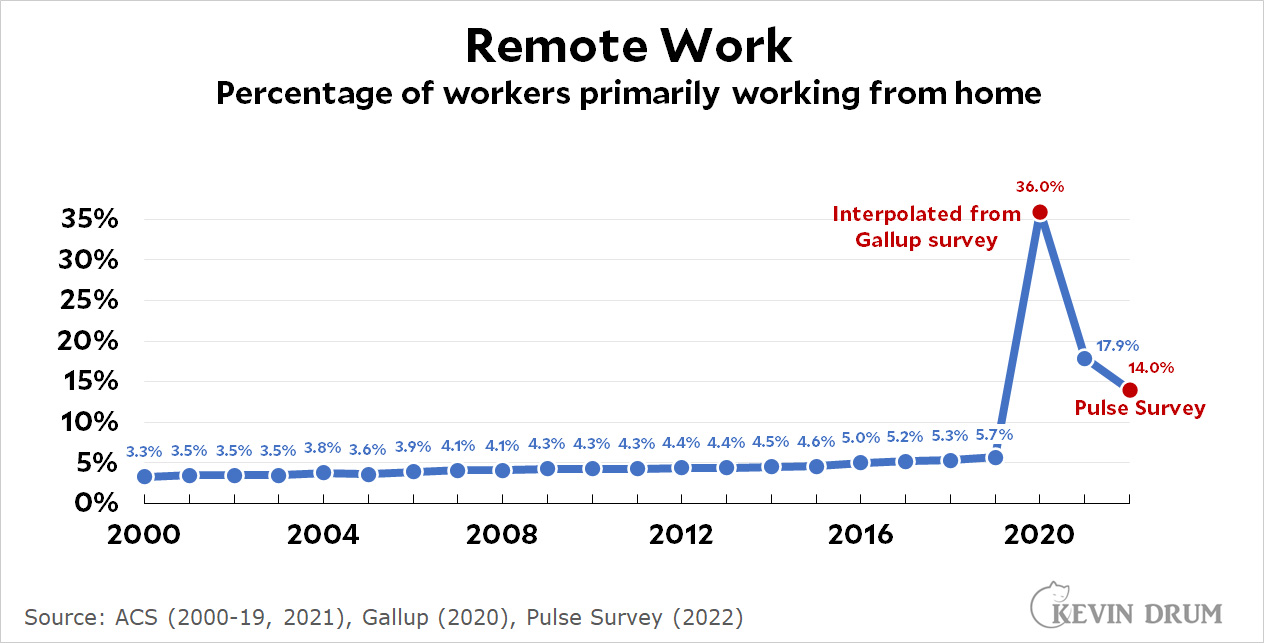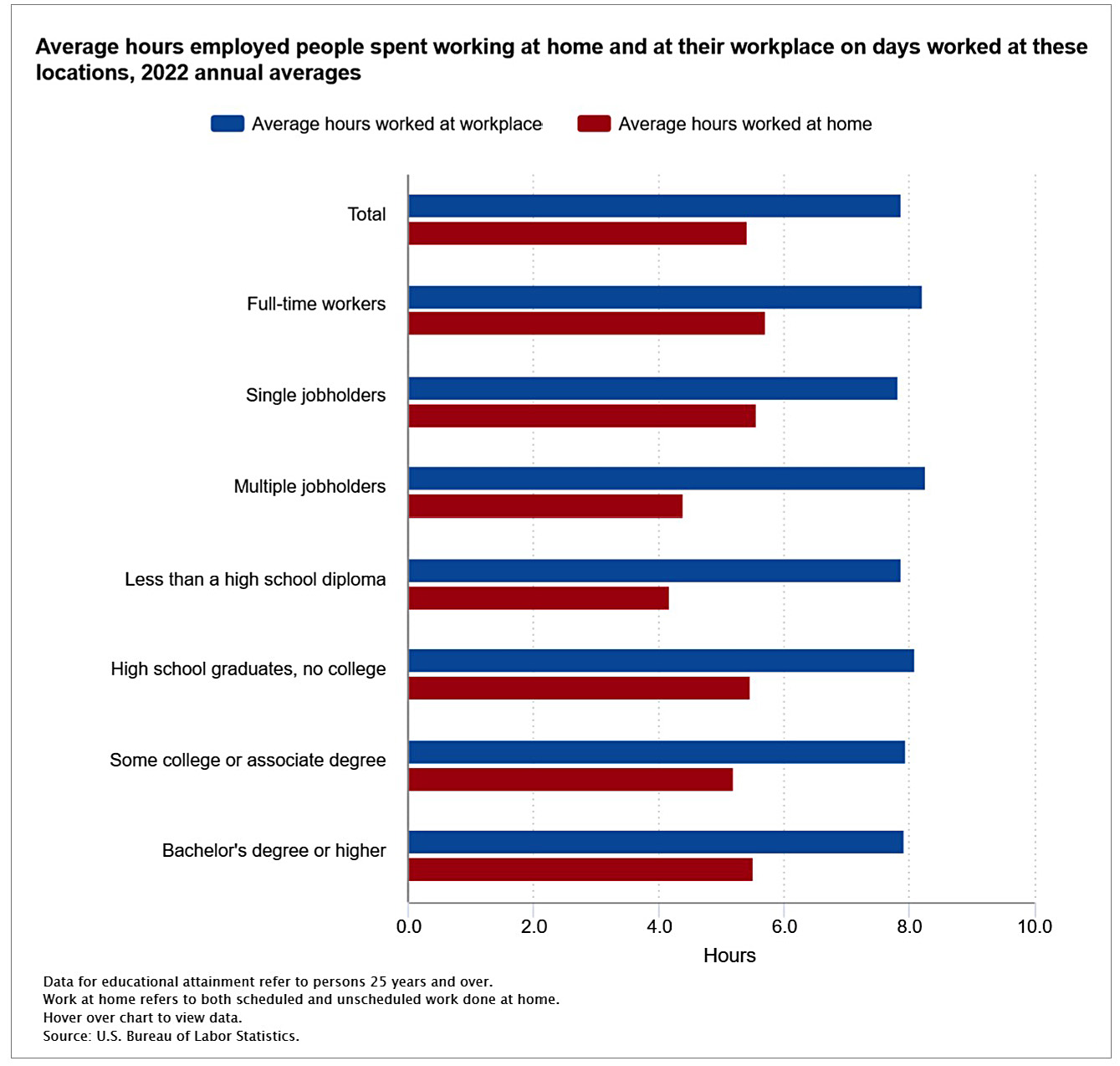Yesterday's tromp through Mississippi's reading scores for third-graders got me a little curious about taking a slightly deeper dive. I'm not sure why. Just bored, maybe.
As you'll recall, in 2013 Mississippi established a set of reading reforms primarily focused on teaching phonics. These reforms included a mandate to hold back kids who don't pass a reading test at the end of third grade—which was controversial at the time but has been maintained ever since. In the Mississippi system, third-graders are initially tested at the end of the school year in May. Those who fail are given a second chance. If they fail again they're urged to attend an intensive summer school session, after which they get a third chance. Here's what the failure rate looks like at each round:
 In the the initial round of testing 26% of third-graders failed. For comparison with a different test, I've added a column for Mississippi's failure rate on both the main and long-term NAEP:
In the the initial round of testing 26% of third-graders failed. For comparison with a different test, I've added a column for Mississippi's failure rate on both the main and long-term NAEP:
- Main: 37% ("below basic")
- LTT: 24% ("below 150")
That's a big difference and I don't know what to make of it, so I leave its interpretation to each of you. If the results from the main NAEP are accurate, it looks like Mississippi is simply conducting a fairly easy test in order to get its failure rate down. If the LTT results are right, the Mississippi test is right on the money.
Now here's how Mississippi does within various categories of third-grade reading:
 Boys fail at nearly double the rate of girls. Black students fail at nearly triple the rate of white students. Military kids do great. So do high-income kids. None of these results look especially out of the ordinary to me.
Boys fail at nearly double the rate of girls. Black students fail at nearly triple the rate of white students. Military kids do great. So do high-income kids. None of these results look especially out of the ordinary to me.
 Finally, here are the NAEP reading failure rates over time—for fourth graders since that's who NAEP tests. Since 2013, the national failure rate has gone up a few points while in Mississippi it's gone down 10 points. The NAEP is a "low stakes" test, meaning that its scores don't affect anything: low-scoring kids don't get held back, teacher evaluations aren't affected, there's no teaching to the test, etc. For this reason it's considered pretty reliable since there's little incentive to cheat.
Finally, here are the NAEP reading failure rates over time—for fourth graders since that's who NAEP tests. Since 2013, the national failure rate has gone up a few points while in Mississippi it's gone down 10 points. The NAEP is a "low stakes" test, meaning that its scores don't affect anything: low-scoring kids don't get held back, teacher evaluations aren't affected, there's no teaching to the test, etc. For this reason it's considered pretty reliable since there's little incentive to cheat.
Overall, none of this gives me any reason to change my mind from yesterday. It looks to me like Mississippi's reading reforms are not a panacea but have worked pretty well.

